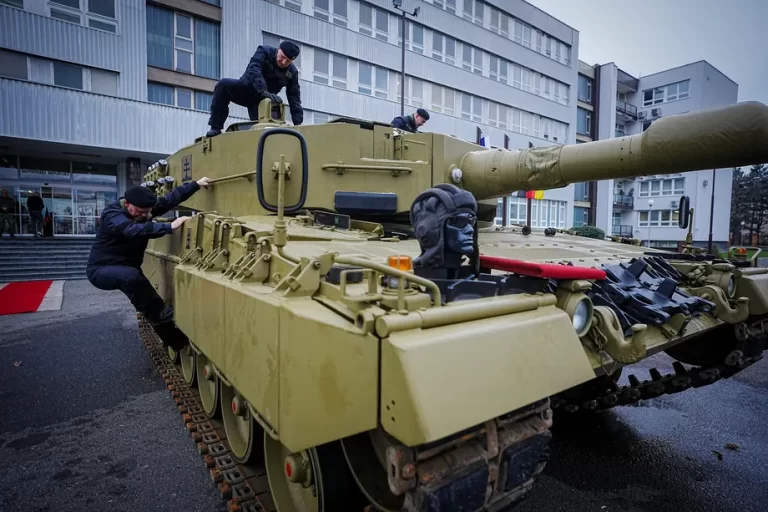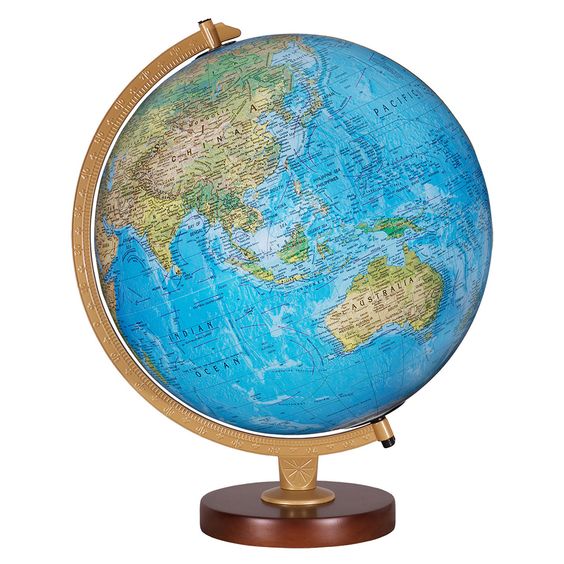
Ukraine wants NATO tanks—especially the German Leopards—to launch a counter-offensive to regain territory.
By Tom Arms
Supplying tanks to Ukraine is not as simple a matter as it may appear at first glance.
It is an issue that is interwoven with competing and overlapping problems of military strategy, political pitfalls, German guilt, Russian nationalism and expansionist ambitions, Ukrainian self-determination, nuclear blackmail, the long-term prospects for peace in Eastern Europe and the age-old battle of good versus evil.
The solution to send perhaps a total of 200 tanks from various NATO countries to Zelensky’s army is insufficient to satisfy the Ukrainians and more than enough to fuel the Russian propaganda machine.
Ukraine is flat tank country. Ukraine wants NATO tanks—especially the German Leopards—to launch a counter-offensive to regain territory.
NATO initially rushed to Ukraine’s aid with defensive equipment; primarily anti-tank and anti-missile weaponry to stop the massive Russian tank attack from Belarus and to blunt Russian artillery barrages.
It worked. In fact, better than expected. So much so that Volodomyr Zelensky appears determined to build on his success to drive the Russians out of all the territory which Ukraine has lost since 2014 (and Russia has annexed) including Crimea.
This would seem quite reasonable as international law is quite-rightly wedded to the principle of self-determination and in 1994 Russia guaranteed Ukraine’s pre-2014 borders and its territorial integrity in return for Ukraine relinquishing its nuclear weapons and signing the nuclear non- proliferation treaty.
But Eastern Ukraine is predominantly Russian-speaking. The majority of its inhabitants have traditionally looked east to Moscow. As for Crimea, it has been Russian since 1783 and one of Moscow’s most important naval centers.
For these reasons the Russian annexation of Crimea and Eastern Ukraine is extremely popular in Russia and with a significant proportion of the population in the disputed territories.
There is a fear in some diplomatic circles that driving Putin’s troops out of Eastern Ukraine and Crimea will only create a long-term problem that would make the Irish and Arab-Israeli questions look like two old mice squabbling over a piece of mouldy cheese.
But set against that is not only the principle of self-determination but Putin’s expansionist dreams elsewhere in Eastern Europe and Central Asia. There are significant Russian-speaking populations in Moldova, Georgia, Estonia, Latvia, Lithuania, Armenia, Kazakhstan, Uzbekistan, Kyryzygstan and even Finland. Putin has publicly cast his covetous eye over most of these territories. Allowing Putin to hold onto Ukrainian territory sets a precedent for his claims elsewhere.
Then there is the issue of Germany. Increasingly German diplomacy is conflated with European diplomacy because of Germany’s economic dominance of the EU. Berlin would prefer to delegate most of its international politicking to Brussels, but the Ukraine War has dictated otherwise.
The main reason for German reluctance is the Nazi-tinged thundercloud of guilt that still hangs over the German people. That cloud is most apparent in Ukraine which suffered more than any other European country from World War Two. Twenty percent of all Ukrainians died, including 900,000 Jews.
There is also the fact that roughly 16.5 million Germans live in the old communist East Germany. They spent 45 years under Russian/Soviet rule. They didn’t like it. But that did not stop them from forming relationships with individual Russians, businesses and organizations.
Since the days of Ostpolitik, Détente and Willy Brandt, the German government has emphasized trade over military preparedness in their dealings with Moscow. The policy has clearly backfired and created the current European energy crisis. Chancellor Olof Scholz claims to have learned the painful lesson, but it is still difficult to reverse 60-years of improving Russian-German relations.
Germans, along with almost all of Eastern Europe, would be among the first to suffer if the Ukraine War goes nuclear. The Russians have publicly announced that their enclave of Kaliningrad bristles with missiles capable of easily reaching Berlin. The Russians, for their part, never seem to tire of threatening the nuclear option despite Chinese demands that they shut up.
Finally, there is the nature of the Russian regime. It is an autocratic, thoroughly corrupt, kleptocratic oligarchy determined to thwart he world’s rule-based order. They are guilty of war crimes in Ukraine, Syria, Chechnya and probably elsewhere as well.
Putin’s regime is borderline evil and the closest the world has come to a battle between good and evil since World War Two. Be aware and prepared for the dangers of standing up to the Russian bear. But after considering the options and consequences, send more tanks.
 World Review
World Review
Franco-German alliance is wobbling
The Franco-German alliance is wobbling. As if to emphasize the problem, this past weekend the entire German cabinet decamped to Versailles in an attempt to improve relations.
The relationship between Paris and Berlin is one of the cornerstones of the European Union. It has been held since 1960 when Charles de Gaulle and Konrad Adenauer ended a century of war and suspicion at Reims Cathedral.
Some of the current problems can be attributed to the egos of Macron and Scholz. President Macron makes no secret of his desire to lead Europe. Unfortunately the French economy does not match its president’s ambitions. At the same time the rather colorless Chancellor Olof Scholz is having difficulty filling the over-sized shoes of his predecessor Angela Merkel.
The personal relationship between the two leaders is complicated by important policy differences over China, Ukraine, Russia and energy. Scholz encourages trade with China. Macron is more diffident. The French president also wanted the German Chancellor’s recent visit to Beijing to be a joint Franco-German affair. Scholz refused.
On energy, the French are annoyed that the Germans failed to foresee the problems of dependence Russian oil and gas and remain reluctant to build nuclear power plants. About 70 percent of French energy is nuclear while in Germany it is only 12 percent.
Then there is Ukraine. The French—along with most of the rest of France and Germany’s allies—are annoyed that almost every scrap of German military and economic aid has to be dragged out of the Scholz government. When it comes the aid is often generous, but the “frank discussions” that precede it are causing friction.
Don’t mess with the BBC
Don’t mess with the BBC. That should have been the message that Indian Prime Minister Narendra Modi heeded before trying to ban a documentary attacking him. The BBC has 22,000 staff, 192 million radio listeners, 294 million television viewers, the world’s most visited news website. Distribution deals with television networks around the world, and the most trusted brand in world journalism.
None of the above, however, stopped Modi from banning a two-part documentary entitled “India: the Modi Question” from being shown or distributed in India.
The documentary was not Modi friendly. In fact, it was extremely unfriendly the program strongly implied that Modi climbed to power on the back of divisive Hindu nationalism. Also that while Chief Minister of Gujarat in 2002 he stood aside and allowed Hindu rioters to massacre 1,000 Muslims. That was part one. In Part two, the documentary accused Modi of trying to disenfranchise the Muslim minority; suppressing freedom of speech, assembly and the press, intimidating his political opponents and moving the world’s largest democracy towards an authoritarian Hindu state.
So, the program was not re-broadcast on Indian television. But the ban was reported in the Indian press. The resultant publicity meant that tens of millions viewed it on the internet and at special showings at Indian universities. And as they watched the viewers would have asked: If it isn’t true why has Modi banned it? Of what is he frightened? And finally they thought: the BBC is usually reliable.
The documentary ended with a diplomat saying that the Western world is turning a blind eye to Modi’s political excesses. He said that India was too important as an economy and a counterweight to Chinese influence in Asia.
The Doomsday Clock
The Doomsday Clock this week moved to 90 seconds to midnight. This is the closest it has ever been to nuclear Armageddon. The minute hand has been moved to its news dangerous position mainly because of the war in Ukraine.
The Doomsday Clock is based at the University of Chicago and is meant to warn humanity how close it is to destroying itself and the planet. If the clock reaches midnight it means that there has been a cataclysmic nuclear exchange or climate disaster.
The board that sets the clock reported this week: “Russia’s thinly veiled threats to use nuclear weapons remind the world that escalation of the conflict—by accident, intention or miscalculation—is a terrible risk. The possibility that the conflict could spiral out of anyone’s control remains high.”
The Ukraine War was also blamed for delaying negotiations for a New START (Strategic Arms Reduction) Treaty to replace the existing agreement which will expire in February 2026. The clock’s board warned that failure to replace START would “eliminate mutual inspections, deepen mistrust, spur a nuclear arms race and heighten the possibility of a nuclear exchange.”
The hands of the Doomsday Clock are set every year by the Science and Security Board of the Bulletin of Atomic Scientists. Their bona fides are impressive. They are not some pontificating hack journalist blogging in his London study. The board was founded in 1945 by Albert Einstein and University of Chicago scientists who worked on the Manhattan Project. Its current membership includes ten Nobel laureates.
Dissension in the ranks of Taliban
There appears to be dissension in the ranks of the Taliban. The cause is the role of women and the need for effective aid agencies to prevent mass starvation.
The Supreme leader, ultra-conservative Ayatollah Hibatulla Akhundzada, is primarily responsible for the misogynistic diktats that banned girls and women from schools and from working with the vital aid agencies.
Akhundzada is a religious ideologue. He is based in Kandahar rather than the capital Kabul and issues theocratic pronouncements from behind closed doors. In fact, he is rarely seen in public and some observers believe that he is dead. His edicts, however, are treated as political gospel by a large segment of Afghanistan’s devout Islamic population.
The Taliban government in Kabul is left to deal with the consequences. These include 28 million out of a total population of 32 million living in extreme poverty. Six million are facing starvation and the entire country is suffering the worst winter in decades with temperatures plummeting to -28 centigrade. This in a country where most huts are made from dried mud and heating consists of a charcoal burner.
The ban on women working NGOs and aid agencies has spelled an end to operations by
Save the Children, Care International, the International Red Cross, Norwegian Refugee Council and even Islamic Relief. Women are needed partly because of numbers and partly because most aid is directed at families and mothers and men are banned from interacting with them—especially foreign men.
This week Martin Griffiths, the UN Under-Secretary for Humanitarian Affairs, reported a possible change of direction by the Kabul government that would allow women to work “in some aid agencies.”
The exact details have not been publicized, but it would appear that Islamic lawyers have found a loophole. The fear now is that Ayatollah Akhundzada will close the loophole. This in turn could widen the rift between the ideologues and the moderate members of the Taliban trying to resolve a humanitarian crisis.
_______________________
 Tom Arms is foreign editor of Liberal Democrat Voice and the author of “America Made in Britain” and “The Encyclopedia of the Cold War.”
Tom Arms is foreign editor of Liberal Democrat Voice and the author of “America Made in Britain” and “The Encyclopedia of the Cold War.”